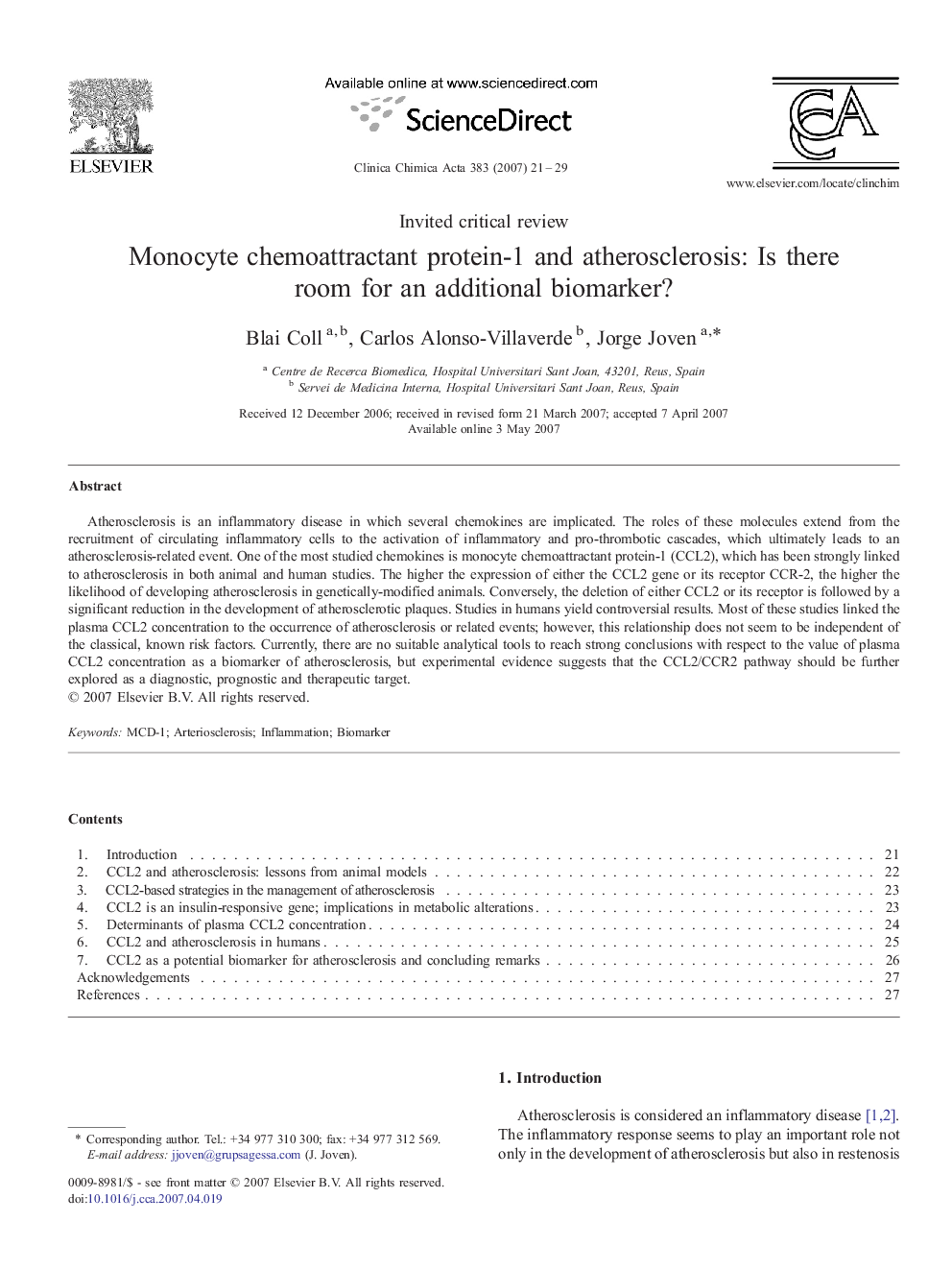| Article ID | Journal | Published Year | Pages | File Type |
|---|---|---|---|---|
| 1967542 | Clinica Chimica Acta | 2007 | 9 Pages |
Atherosclerosis is an inflammatory disease in which several chemokines are implicated. The roles of these molecules extend from the recruitment of circulating inflammatory cells to the activation of inflammatory and pro-thrombotic cascades, which ultimately leads to an atherosclerosis-related event. One of the most studied chemokines is monocyte chemoattractant protein-1 (CCL2), which has been strongly linked to atherosclerosis in both animal and human studies. The higher the expression of either the CCL2 gene or its receptor CCR-2, the higher the likelihood of developing atherosclerosis in genetically-modified animals. Conversely, the deletion of either CCL2 or its receptor is followed by a significant reduction in the development of atherosclerotic plaques. Studies in humans yield controversial results. Most of these studies linked the plasma CCL2 concentration to the occurrence of atherosclerosis or related events; however, this relationship does not seem to be independent of the classical, known risk factors. Currently, there are no suitable analytical tools to reach strong conclusions with respect to the value of plasma CCL2 concentration as a biomarker of atherosclerosis, but experimental evidence suggests that the CCL2/CCR2 pathway should be further explored as a diagnostic, prognostic and therapeutic target.
